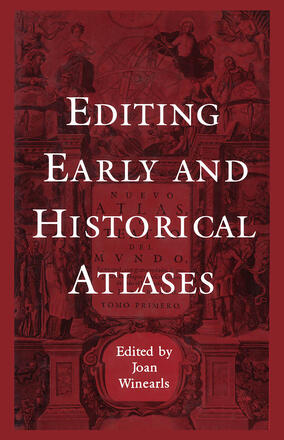
Editing Early and Historical Atlases
Papers given at the Twenty-ninth Annual Conference on Editorial Problems, University of Toronto, 5-6 November 1993
Description
The atlas, one of the oldest types of geographic encyclopedias and reference works, has often been thought of as simply a group of maps bound together. Yet every atlas is conceived and shaped, put into meaningful order and made uniform in some way by its author, editor, or publisher. Editing Early and Historical Atlases was the title and focus of the twenty-ninth annual Conference on Editorial Problems, organized in honour of the completion of the final volume of the Historical Atlas of Canada.
The essays in this collection focus on two areas of inquiry: original editing problems associated with various atlases, from the earliest to the most recent, including the products of early author-publisher partnerships as well as modern multidisciplinary editorial and cartographic teams; and the analysis of a variety of different atlases, to give a diverse picture of an important reference work as it has evolved through the ages. The papers throw light on the nature and history of the evolution of the atlas as a book, and also on the atlas as a 'text' of contemporary times.
As James Akerman says in the introduction to his paper on the origins of the concept of the atlas, 'an atlas is a map of maps, and its editor a meta-cartographer. The editor's primary role in the creation of an atlas is not to draw maps but to make sense of them through the logic or structure of the entire book.'
Reviews
'This outstanding collection of essays by leading scholars will undoubtedly encourage further research.'
- John D. Blackwell
'Editing Early and Historical Atlases is an excellent contribution – highly readable and well-written – and very welcome in the general history of atlases. It fills a valuable and very lacking need for information to further our understanding of this bibliographic genre, enhancing our appreciation of atlases without destroying the beauty and mystery of these works.'
- Dalia Varanka